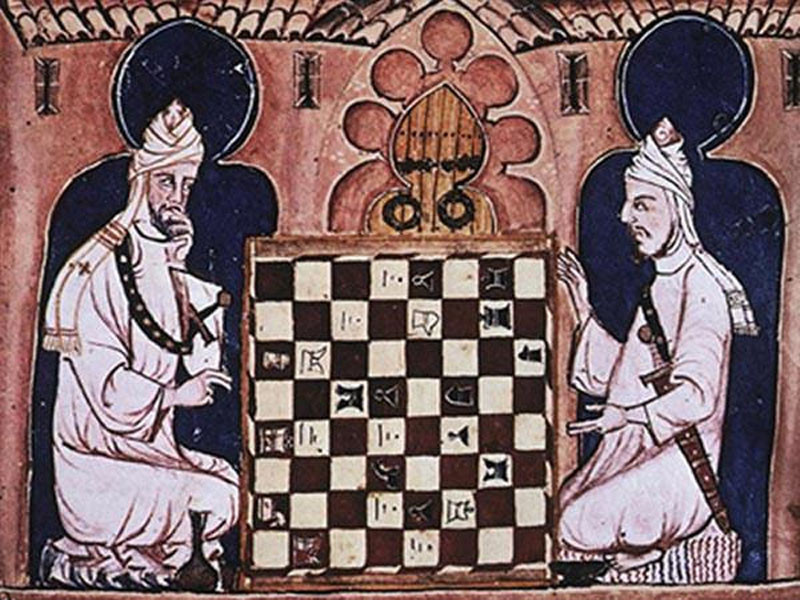Early forms of chess originated in India around the 6th century AD . It known as chaturaṅga, literally four divisions [of the military] – infantry, cavalry, elephants, and chariotry ─ represented by pieces which would later evolve into the modern pawn, knight, bishop, and rook, respectively.
Chaturanga is first known from the Gupta Empire in India around the 6th century CE. In the 7th century, it was adopted as chatrang (shatranj) in Sassanid Persia, which in turn was the form of chess brought to late-medieval Europe.
Archeological remains from 2000-3000 B.C have been found from the city of Lothal (of the Indus Valley Civilisation) of pieces on a board that resemble chess.
Wilhelm Steinitz, the first World Champion, widely considered the “father of modern chess,” William Steinitz was an Austrian and later American chess player, and the first official World Chess Champion, from 1886 to 1894.
VEDIK GYAN
Why is half round (Pradakshina) made around the Shiva linga?
According to Shivpuran, only a half-parikrama of Shivalinga should be carried out. This is because Shiva is Anadi and Anant himself. It’s said that Shiva’s Shakti is so fierce that none could ever interfere or come in the line of it. Nirmili is a sacred part of the Shivling and must never be over-stepped. Therefore, it is advised to only perform half-parikrama of Shivlinga to avoid stepping over the Nirmili.
By Somasutra is meant the Half Moon like curve that is traced out in the process.
LEARN Sanskrit-विस्मरण : Oblivion: भूल जाना
 |
Ch Narmada Naveen Kumar |


